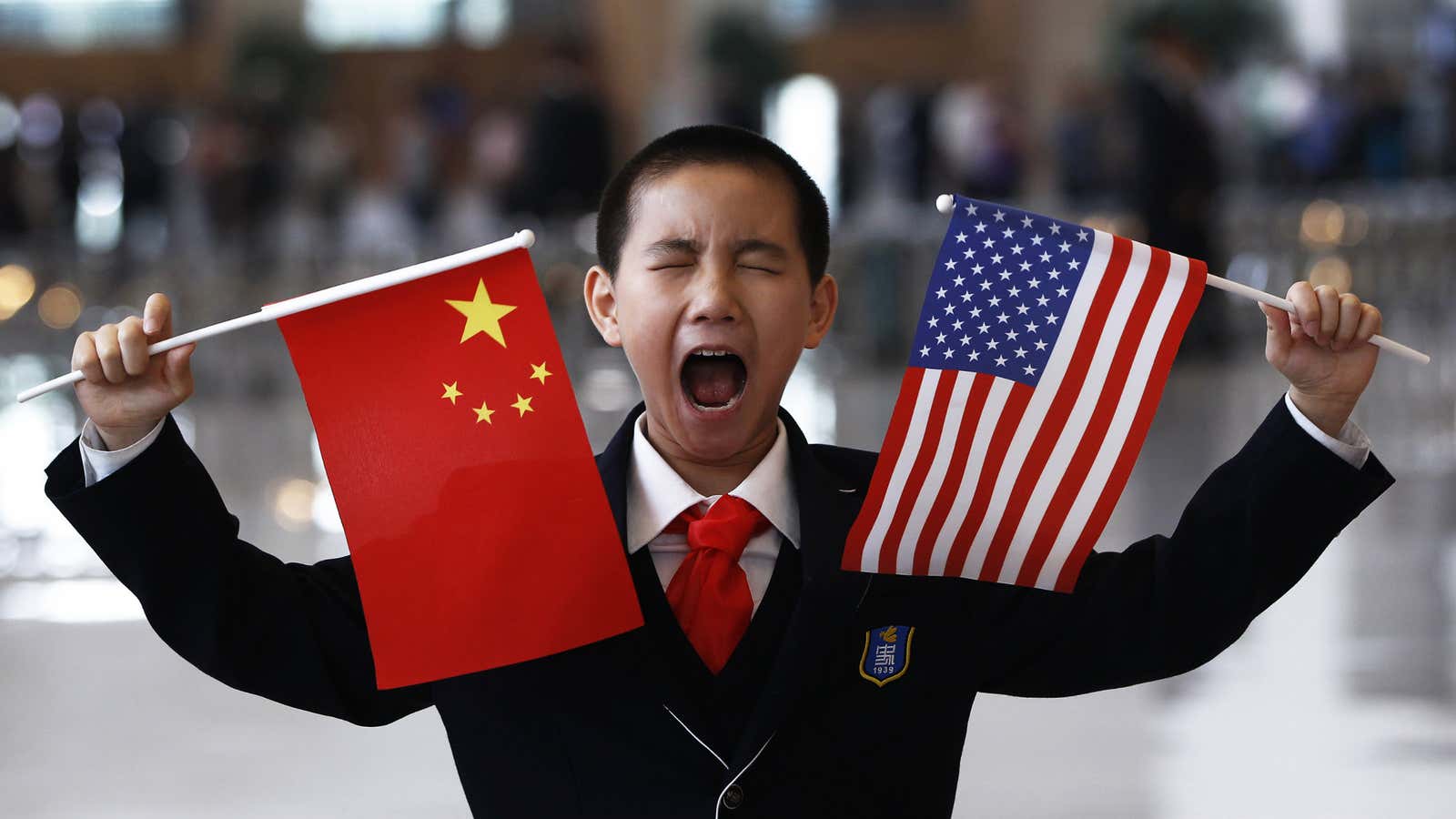As Chinese firms expand and look to international markets, there’s an increasing demand for Western-educated management. A collaboration between Peking University’s Guanghua School of Management and Northwestern’s Kellogg School of Management is offering an english language executive MBA in the hopes of filling that gap.
Kellogg already operates a joint executive MBA with Hong Kong’s University of Science and Technology and joins the University of Southern California, Arizona State University, and INSEAD, which already have joint executive MBA programs 0n China’s mainland. The two year program will cost $150,000 and launches this fall. Classes will be taught in Beijing, Shanghai, and Evanston, Illinois.
“There are a lot of Chinese state-owned enterprises that have a mandate to westernize,” Kellogg Associate EMBA Dean Greg Hanifee told Quartz. ”And part of that is hiring talent that understands the West and how business operates there. Their motivation is to ensure that they remain competitive both in China and as they look to expand outside of China.”
And on the other side, foreign multinationals trying to compete or expand in China, and they need management talent as well.
“The economic drive in China is not changing, though it may be slowing,” Hanifee says. “It’s still an attractive place for a global company to plant a flag, so there will be expatriates that want to understand more deeply how to do business in China.”
Many companies are looking for bilingual executives who have both Western and Chinese experience and a top tier education, but they’re hard to find. A professor at China Europe International Business School (Ceibs), estimated last year (paywall) that the number of mainland Chinese executives operating at the top level of global companies is in the low thousands. The gap is often filled by nationals educated abroad, or expats from places like Taiwan and Hong Kong who don’t necessarily understand the market very well, according to Capvision co-founder Kai Hong (paywall.)
Guanghua is one of the highest rated business schools in China and Kellogg has the top rated executive MBA in several rankings, and successful partner programs in Germany, Toronto, Tel Aviv, and Hong Kong.
The school expects to attract about an equal balance between Chinese nationals and expats, with slightly more locals, according to Hanifee. That estimate comes from Kellogg’s experience in other countries and its view of local demand. Like other Kellogg partnerships, half of the courses will be taught by US faculty, and the other half will be from Guanghua. Much of curriculum will focus on what it takes to succeed in China. China-focused courses include “Management in the Chinese Context,” “Strategy and Implementation in China,” and “Finance in China.”
